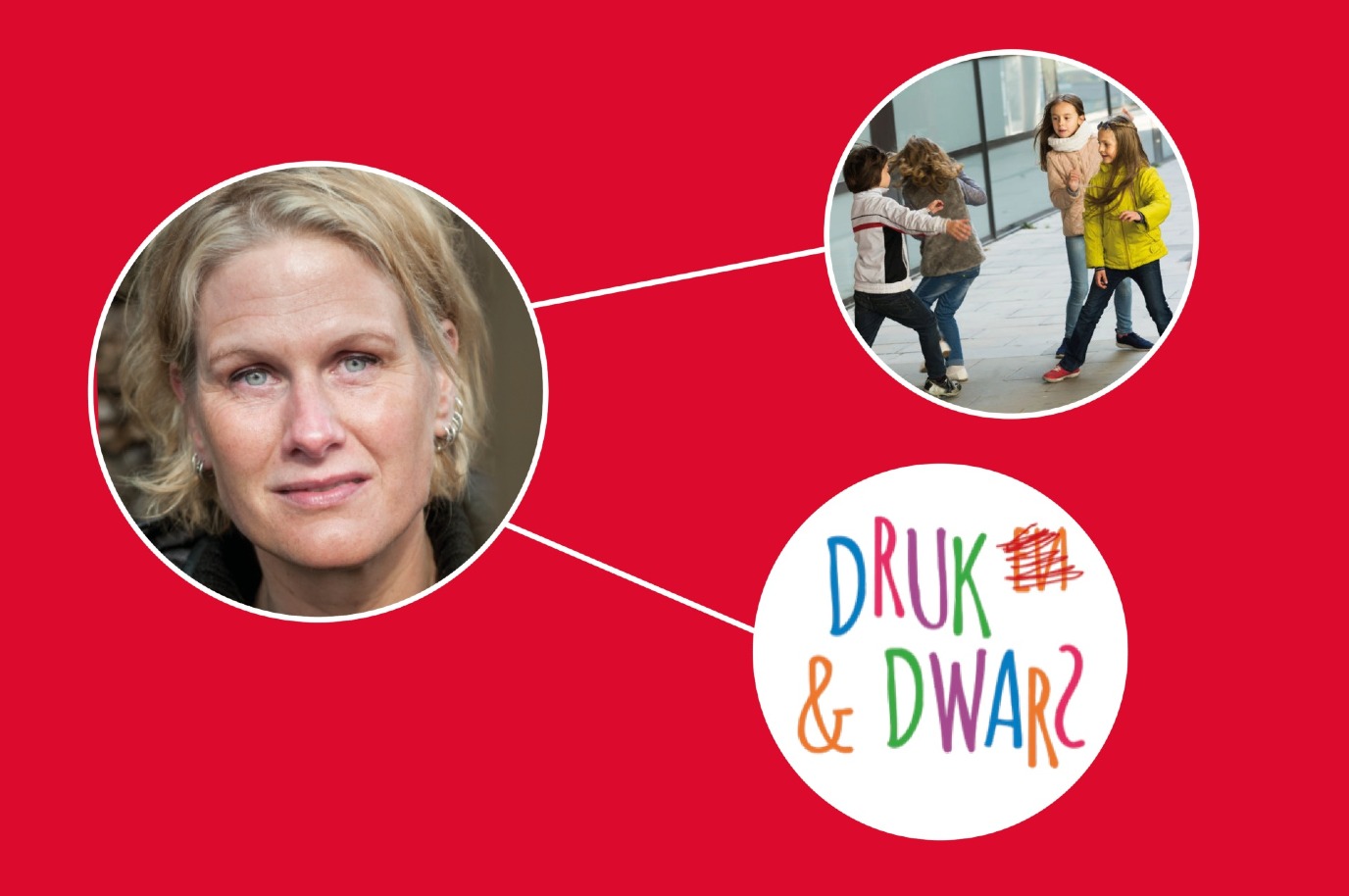Science for Society | Wild & Willful
Scientists work day by day on solutions to a variety of problems. From new drugs to smart farming techniques, our research helps society move forward. But this is not always immediately visible. In the Science for Society series, we use stories about impactful innovations, products and ideas to show that science works!
Text: Gert Gritter, Corporate Communicatie UG
Quite a few children display energetic and headstrong behaviour that does not fit in with the demands our society places on them. Parents, teachers, and pedagogical staff are therefore looking for tools to deal with this behaviour without immediately having to resort to professional help. With this in mind, the low-threshold programme Wild & Willful [Druk & Dwars] has been developed. The initiator and project supervisor is Laura Batstra, associate professor of Orthopedagogy at the University of Groningen. ‘For children, it is helpful not to immediately be given a medical label. In most cases, this does more harm than good.’

Low-threshold
Druk & Dwars is a partnership between the Orthopedagogy Department at the University of Groningen, professionaliseringscentrum Noordelijk Onderwijsgilde [the Northern Education Guild professional development centre], and various municipalities in the Northern Netherlands: Eemsdelta, Groningen, North-East-Fryslân, and Dantumadiel. Key features of the programme include low-threshold participation and a focus on not making the situation any more difficult than it already is. Batstra: ‘By offering low-threshold assistance in mild cases, specialist care is reserved for children with serious and persistent problems.’ Druk & Dwars operates quickly and locally, which means that parents and children do not have to be on a long waiting list or be sent from pillar to post. Ultimately, this saves on medical care costs, which are skyrocketing. For Batstra, the project has a personal dimension. ‘I used to be a hyperactive and headstrong child, even though I never had any official diagnosis. When the newspaper Leeuwarder Courant interviewed me, they had an article about me with the title: “Laura Batstra: wild and willful”. That’s when I knew: this has to be the name of the project.’
‘I have a boisterous child at home’
Prior to this, Batstra worked as a psychologist and therapist in child psychiatry. She resigned because she was frustrated with how easily children are diagnosed with conditions such as ADHD and given medication. Since then, she has been committed to getting attention for a pedagogic, normalising and contextual approach of ‘wild’ behaviour in children. Partly as a result of the publicity generated, parents started to seek her out. They approached her with the question: ‘I have a boisterous child at home, what should I do?’ To meet this need, she started organizing group courses for parents together with her colleague Sanne te Meerman. This led to the gradual expansion of Wild & Willful from a two-person initiative to a larger organization. A core team is now working with a growing number of other parties to develop a child-friendly approach that normalizes the behaviour of energetic and headstrong children, with Batstra still involved as a supervisor.
Classroom parties
As an extension of Druk & Dwars, Batstra has also launched the Classroom Parties project. ‘The aim is to prevent children from being excluded. Some children are never invited to parties because they are too busy, too quiet, or just “different”. That’s why we started organizing classroom parties where everyone is welcome. The responses have been heart-warming, but sometimes also painful, for example when you hear from a child that this is the first party they have ever been to. We would like children to learn early on that everyone belongs. My team and I hope to contribute to a society in which every child will grow up in good spirits, safety and good health.’
Do you want to know more about Science for Society? Check out the overview page for the previous editions.
More information
More news
-
17 February 2026
From Ghostbuster to Disaster Researcher
-
03 February 2026
‘Such willpower’
-
20 January 2026
Alcohol, texting, and e-bikes
